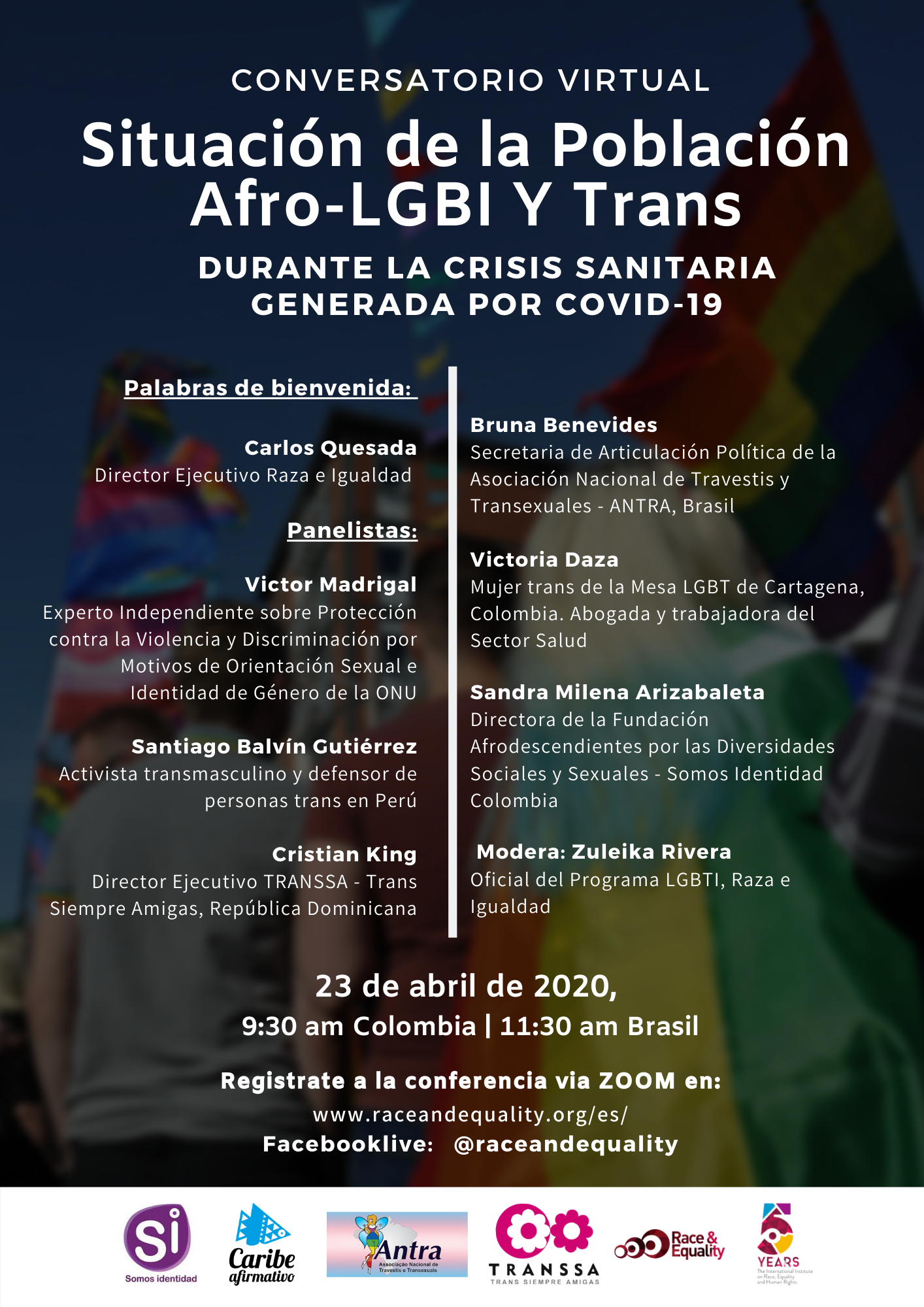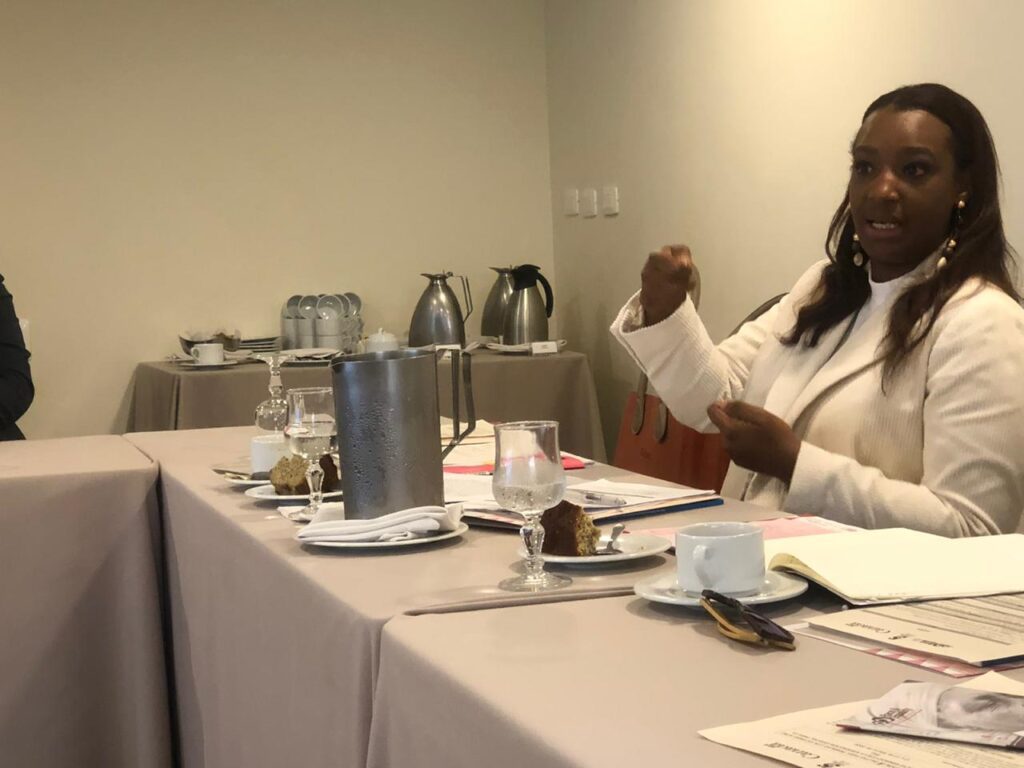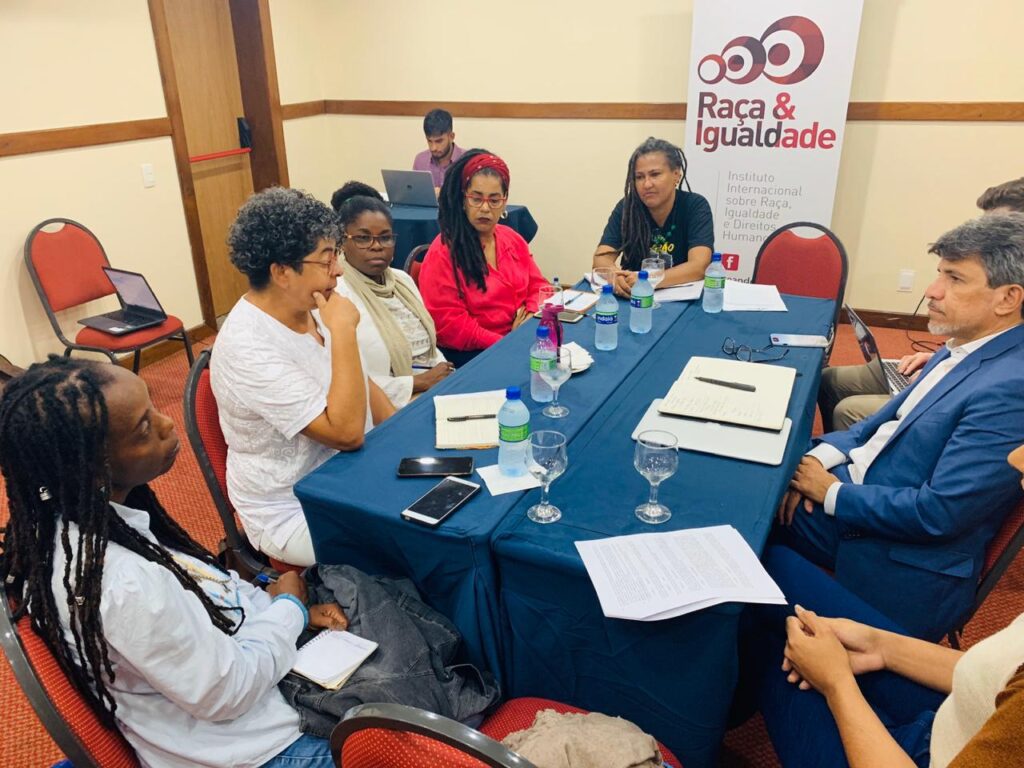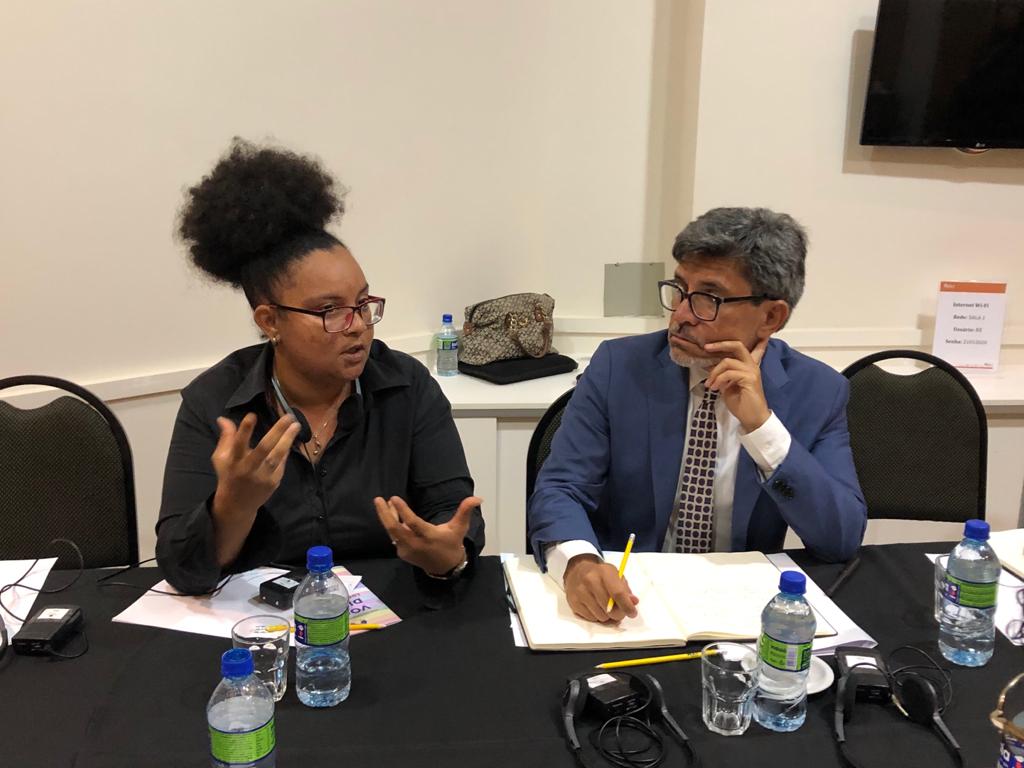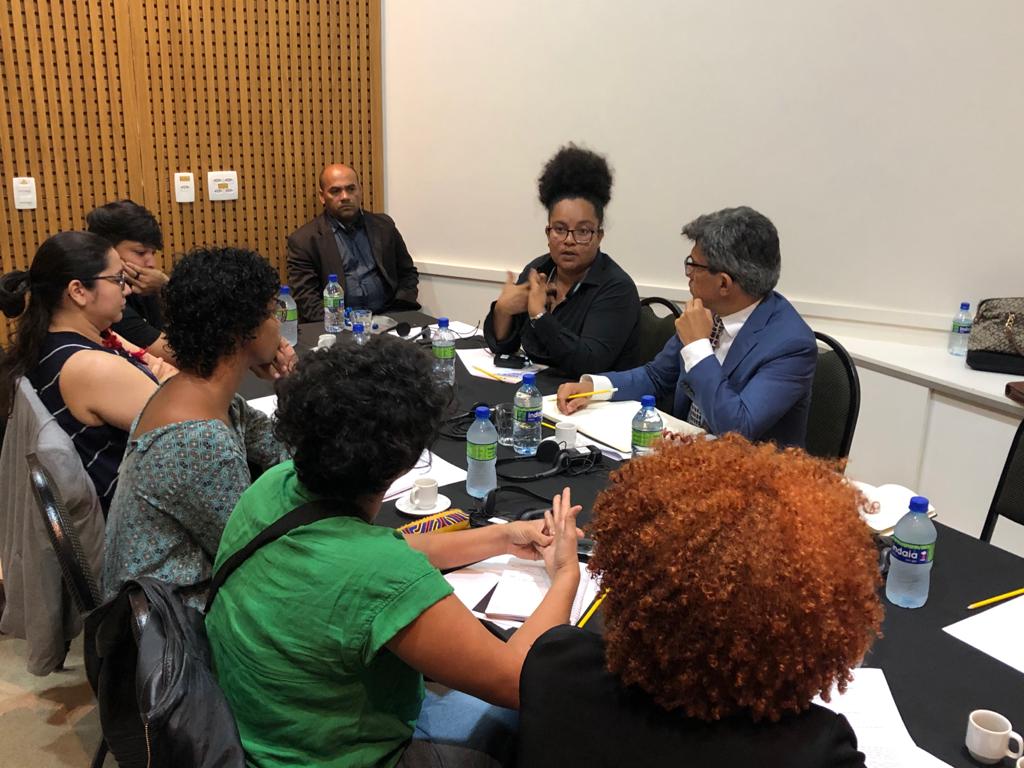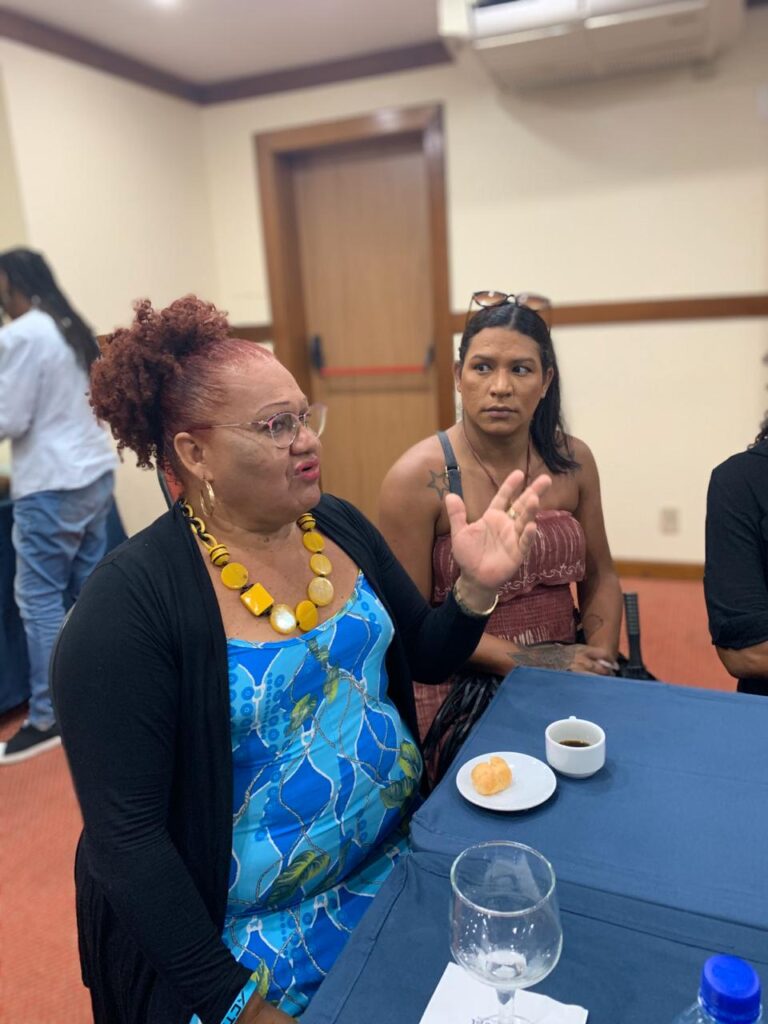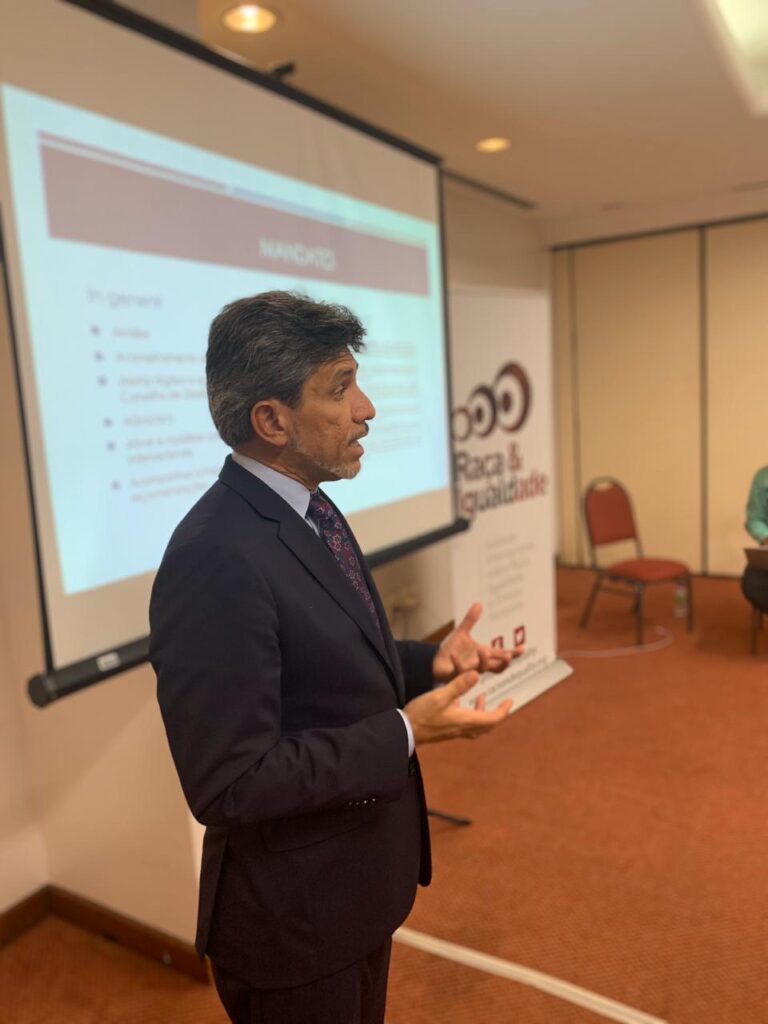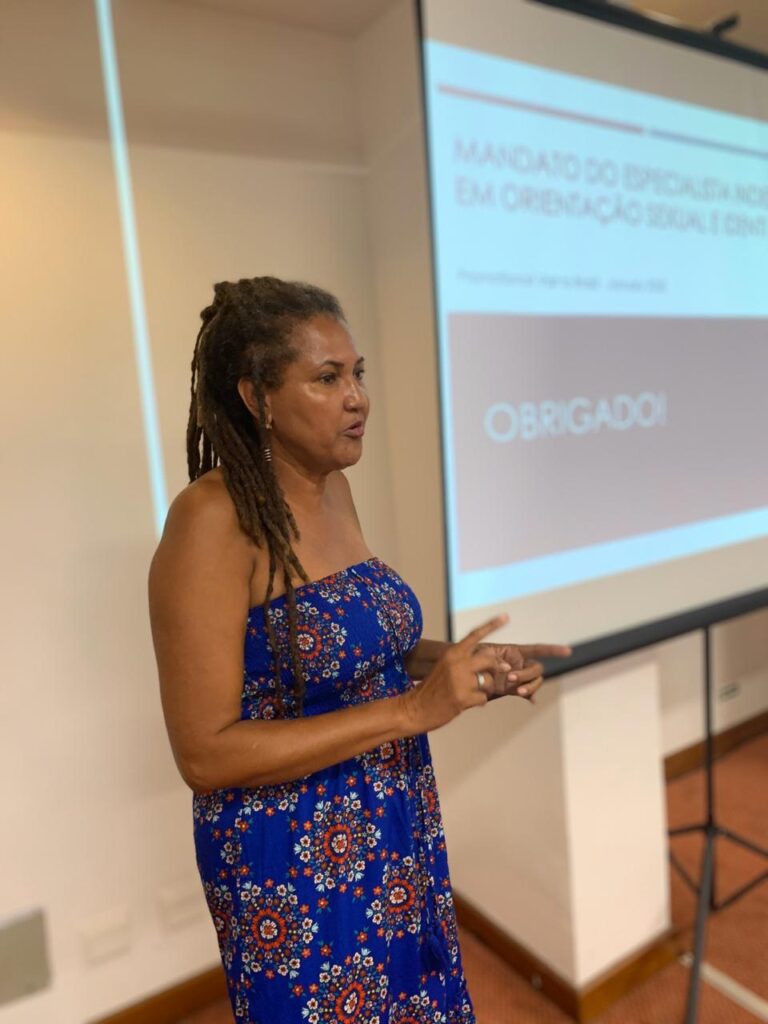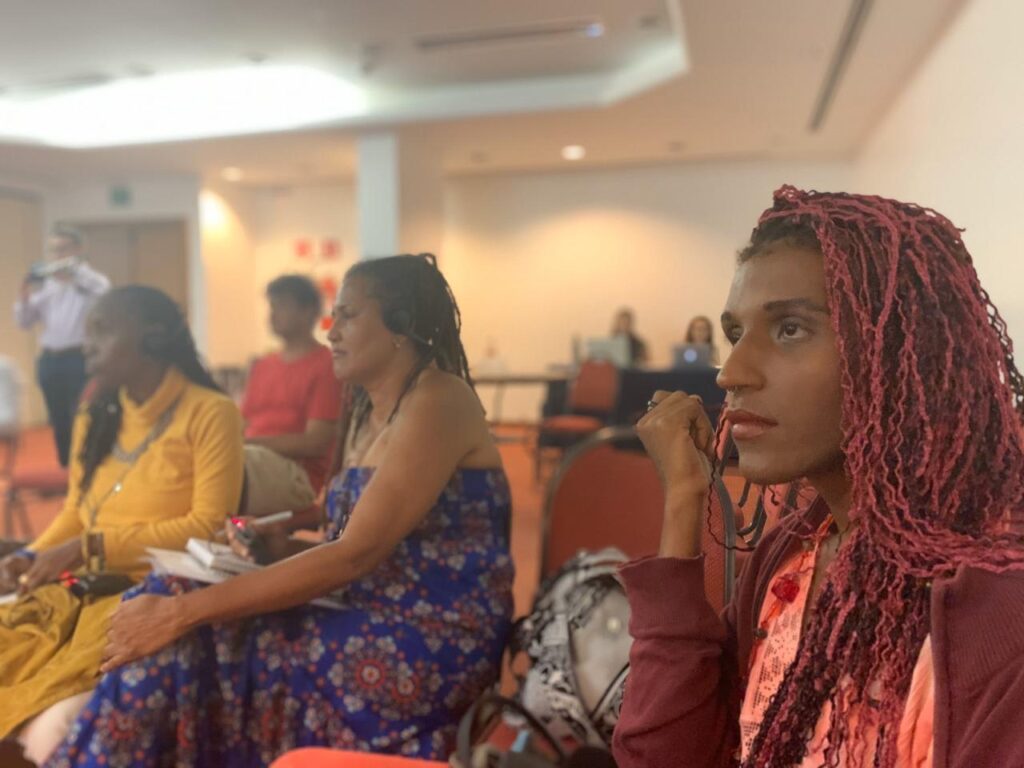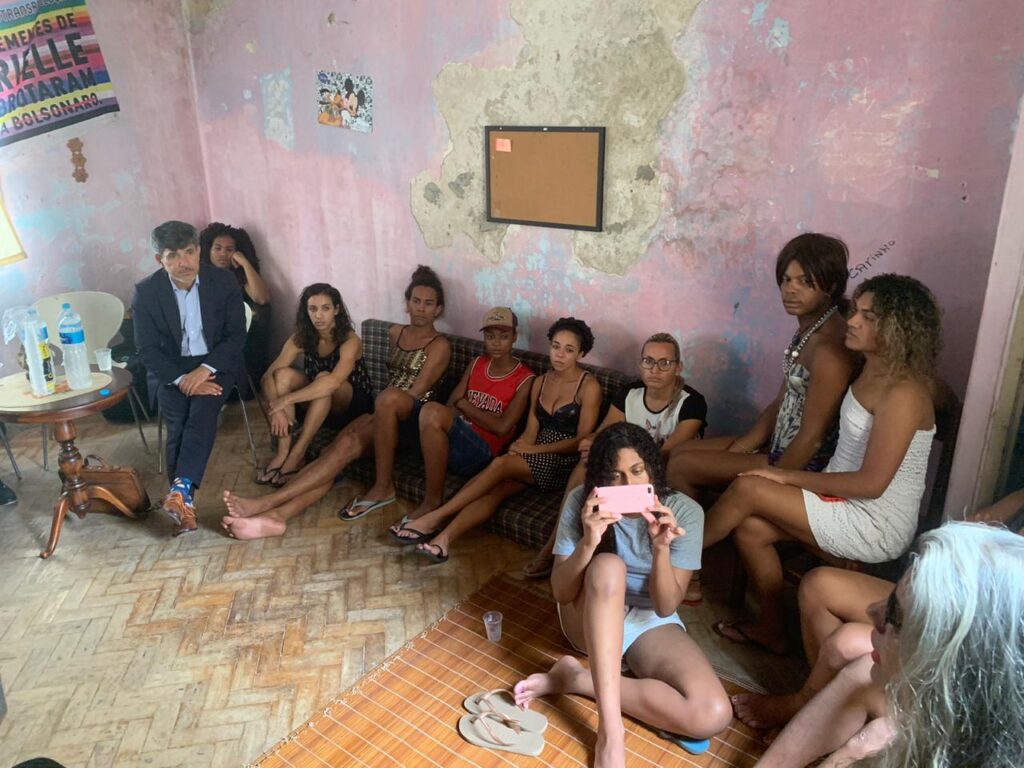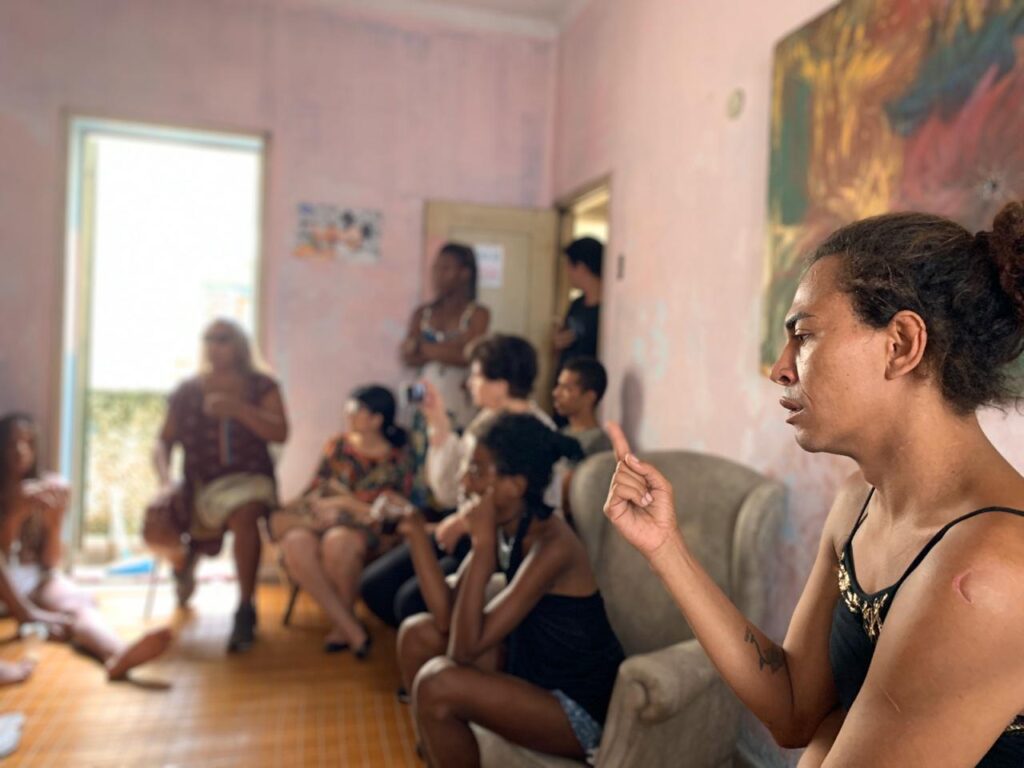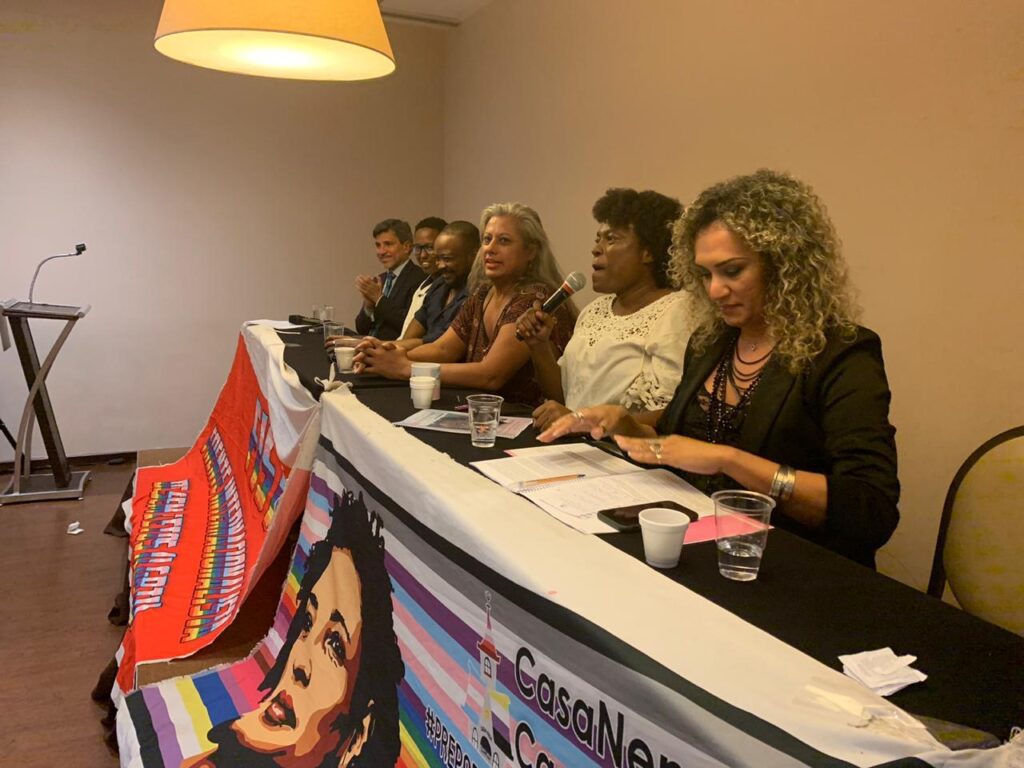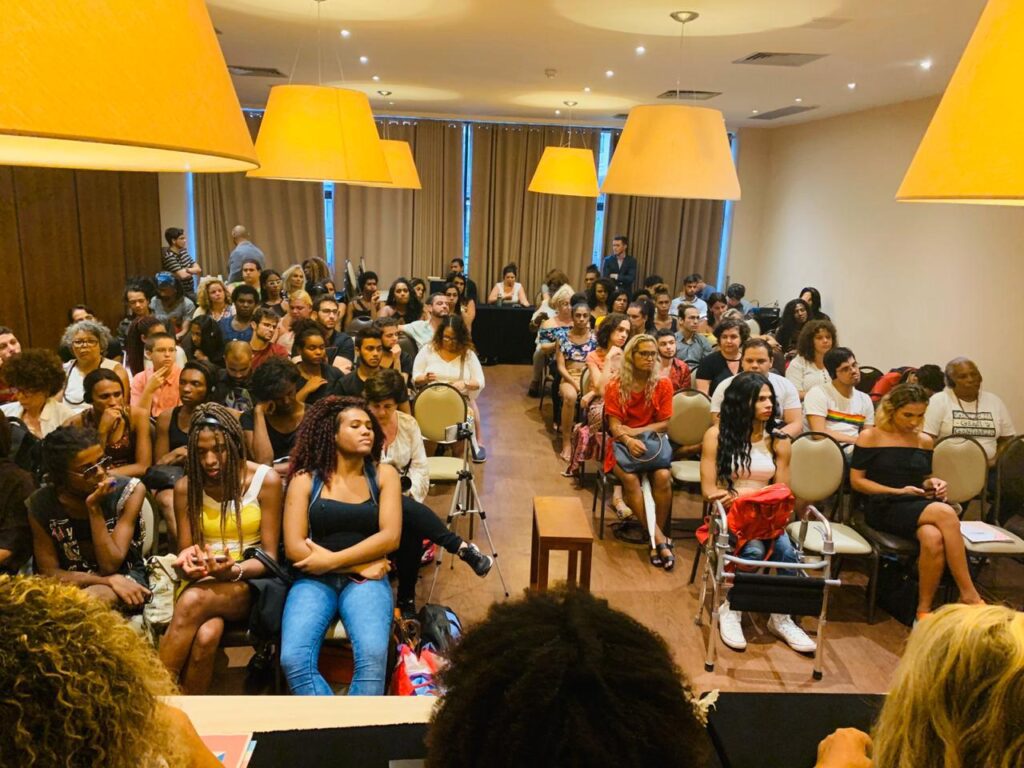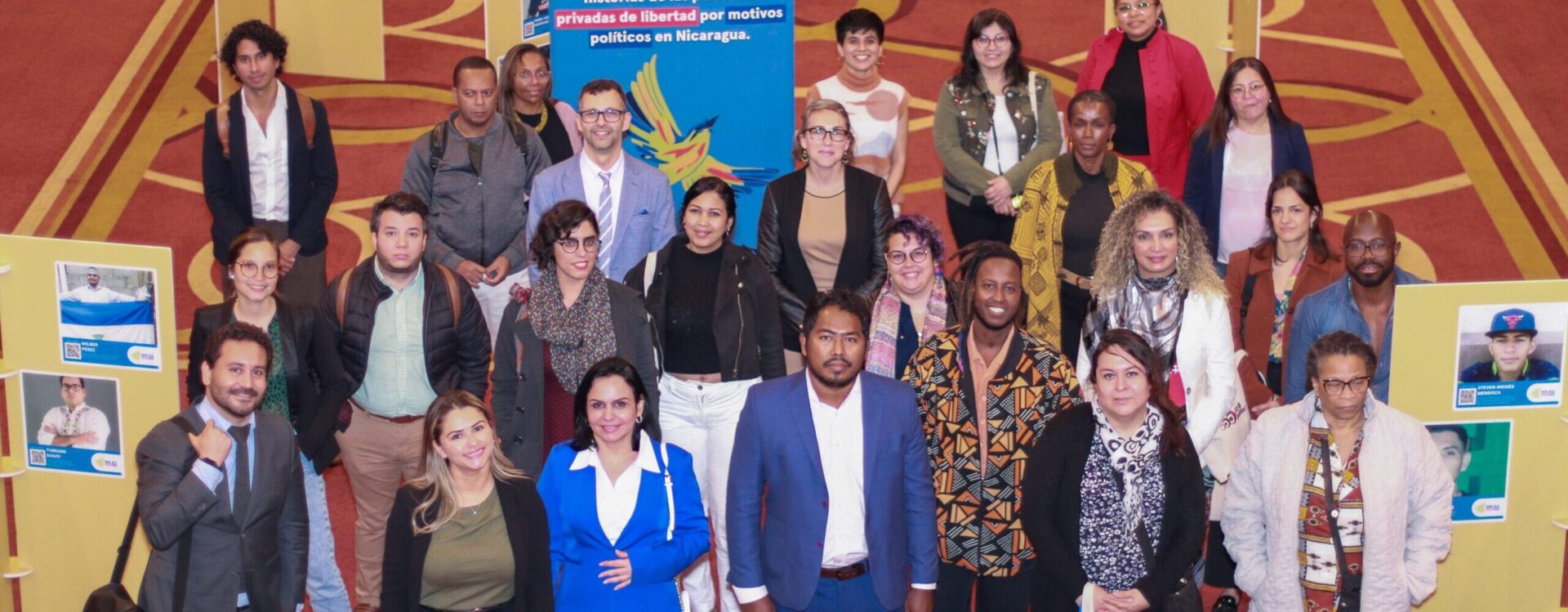Raza e Igualdad organizó un webinar con activistas para compartir los efectos del COVID-19 sobre la población LGBTI en América Latina con el Experto Independiente en asuntos SOGI de la ONU
El Instituto Internacional de Raza, Igualdad y Derechos Humanos (Raza e Igualdad) celebró un webinar con el Experto independiente sobre protección contra la violencia y la discriminación basada en la orientación sexual y la identidad de género de la ONU (EI en SOGI de la ONU), Víctor Madrigal y líderes/as, activistas y miembres de organizaciones de la sociedad civil LGBTI de diferentes países de América Latina para discutir y comprender mejor las condiciones actuales en medio de la pandemia de coronavirus.
El evento, titulado «La realidad de las poblaciones afro-LGBI y Trans durante la actual crisis de salud causada por COVID-19 en América Latina«, que se llevó a cabo el jueves 23 de abril, comenzó con unas palabras de apertura del Sr. Madrigal, hablando sobre la declaración sobre COVID-19 publicada por el experto de la ONU el 26 de marzo y las motivaciones detrás de ella. «Debemos tener una comprensión clara de cuándo estas medidas tienen un impacto diferenciado en nuestras comunidades y poblaciones«, afirma, explicando la necesidad de comprender los impactos desproporcionados y desiguales de la pandemia, la importancia de compartir las experiencias de todas las comunidades para fortalecer el apoyo mutuo y la importancia de que los Estados incluyan a estas comunidades en el momento en que diseñen las medidas que deban tomarse.
El activista trans Santiago Balvín, de Perú, citó los numerosos casos de violencia contra las mujeres trans que surgieron debido a la medida «pico y género» que se implementó en este país, restringiendo la circulación de la población en función de su género. «Desde el comienzo de la cuarentena hasta el 10 de abril, cuando esta política finalizó, en el transcurso de unos 25 días, más de 15 casos de transfobia ocurrieron por parte de la policía y/o las fuerzas armadas«, dijo Balvín, y señaló que a pesar de que la política fuera derogada, en la comunicación oficial se decía que se debía a las altas aglomeraciones de mujeres y no a las denuncias de violencia y discriminación contra la población trans.
Colombia ha tomado también medidas basadas en género en diferentes ciudades, implementando el «pico y género» y dejando la circulación de las personas en manos de la policía. Como detalla la activista Victoria Daza de la Mesa de Trabajo LGBTI de Cartagena, esto ha puesto en riesgo su derecho a la alimentación y la salud, lo que dificulta que la población trans tenga acceso a servicios para cubrir estas necesidaes. El Ministerio del Interior prometió brindar ayuda a las organizaciones LGBTI en una campaña llamada «Colombia está contigo«, pero hasta ahora no se han recibido alimentos ni otros suministros.
En otras regiones del país, como el Pacífico Sur, las preocupaciones son aún mayores, ya que esta región se encuentra empobrecida y sin la infraestructura necesaria para enfrentar una crisis de esta escala. Sandra Arizabaleta de la organización Somos Identidad en Cali afirma que «la violencia y el abandono histórico del Estado han dejado su huella en esta parte del país». Ella da el ejemplo de Tumaco donde «en este momento no tienen ningún servicio de salud para atender a las personas que contraen COVID-19«. La duración prevista de la pandemia y el retraso en la protección de las poblaciones más vulnerables, como las personas LGBTI, es extremadamente preocupante para los activistas en esta región.
Christian King, Director Ejecutivo de TRANSSA, una organización trans en la República Dominicana, también expresó su preocupación por la falta de información o acciones específicas que se están tomando en las condiciones actuales. “En nuestro país solo comparten los números. No comparten ninguna información sobre la población o sectores específicos de donde son estas personas». La falta de conocimiento y legislación específica para proteger a las personas trans en la República Dominicana es aún más crítica en momentos como estos. No se han tomado medidas especiales para ayudar a la población trans, y políticas como los toques de queda ponen en peligro el acceso a los medios de vida.
Si bien la mayoría de los Estados han implementado diferentes planes para combatir la propagación de COVID-19, la política nacional inestable del Estado de Brasil ha dejado los esfuerzos de contención en manos de los gobiernos locales. «Brasil es uno de los 4 países del mundo que ignoró las recomendaciones de las agencias de salud para fortalecer las políticas neoliberales, aprovechando este momento de una crisis mundial para eliminar más derechos laborales e implementar medidas más negativas» dijo Bruna Benevides de la Asociación Nacional Brasileña de Travestis y Transexuales, ANTRA.
También destacó que los casos de subregistro han sido una política estatal utilizada como justificación para manipular a la población para que crea que todo está bien. “Dicha política afecta directamente a los pobres, los negros, los ancianos, las personas con discapacidades, las mujeres, las personas que viven con el VIH, los LGBTI +, los indígenas y otros que tienen más factores de riesgo debido a la naturaleza precaria de sus vidas. Los negros son la mayoría entre los muertos y tienen más probabilidades de tener complicaciones”, concluye.
El evento, que contó con más de 500 asistentes que siguieron el evento a través de Zoom y Facebook Live, puso de manifiesto la necesidad de más acciones para ayudar a les miembres de las comunidades afro y LGBTI durante la crisis de salud actual. El EI en SOGI finalizó el evento declarando que su mandato está al servicio de todas las organizaciones LGBTI, alentando a los grupos y activistas de la sociedad civil a presentar reportes e información sobre los efectos de COVID-19 en sus países de origen.
Con nuestras contrapartes, Raza e Igualdad insta a los Estados a incluir representantes LGBTI en la planificación de la salud pública para la emergencia y las acciones para combatir el COVID-19, teniendo en cuenta a las personas con identidades de género diversas y sus necesidades particulares durante estos tiempos. Los Estados deben proporcionar datos desagregados sobre estas poblaciones para servir mejor a les más vulnerables y marginades, como las poblaciones afro-LGBI y trans. Con esto, los Estados también deberían tomar medidas diferenciadas para atender las necesidades de las personas LGBTI en el mercado laboral informal que se encuentran en mayor riesgo de declive.
Agradecemos a les panelistas y participantes del conversatorio. Nuestro compromiso por la construcción de un mundo diverso, inclusivo y con justicia social continuará por el reconocimiento de los derechos de todes las personas LGBTI.

